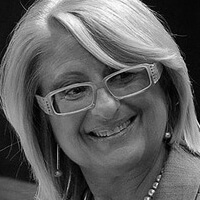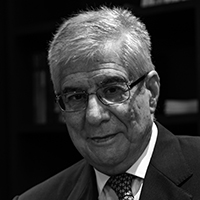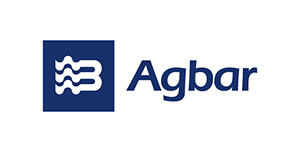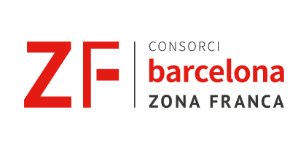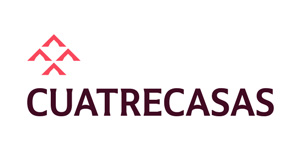Who we are?
The Barcelona Institute of Economics (IEB) is a research centre whose goals are to promote and disseminate work in Applied Economics, and to contribute to debate and the decision-making process in Economic Policy.
Founded in 2001 within the University of Barcelona (UB), the IEB enjoys the official recognition of the Catalan Government. In 2008, the Institute received a major boost with the creation of the IEB Foundation, on whose board of trustees sit representatives of private business (“la Caixa” Foundation and Saba), public institutions (the Barcelona Metropolitan Area and Barcelona City Hall) and the universities (University of Barcelona and the Autonomous University of Barcelona), in what is an excellent example of collaboration between the public/private sectors and academia. In carrying out its work, the IEB works closely with the Institute of Fiscal Studies, the Barcelona Provincial Council, Agbar, Cuatrecasas and Consorci Zona Franca Barcelona.
The IEB also hosts the Chair of Energy Sustainability at the UB (funded by the Foundation for Energy and Environmental Sustainability) and the Chair on Urban Economics City of Barcelona at the UB (funded by the Barcelona City Hall).
The research work of the Institute’s members is conducted primarily in the fields of fiscal federalism and public economics; urban economics; transport economics and infrastructure; energy sustainability; tax system analysis; economics of education; health economics; innovation; labour market – immigration and security policies.
As the IEB’s annual report shows, this research, carried out within the framework of competitive national and international projects, is presented at conferences, seminars and workshops, and is published primarily in specialist academic journals. In order to promote and disseminate this research further, the IEB publishes its own series of working papers and organises related activities, including seminars, workshops, and summer schools, among other events.
Similarly, with the aim of bringing its research findings to a wider audience, and of promoting debate and contributing to the policy-making process, the Institute periodically releases the IEB Report and the IEB’s Report on Fiscal Federalism and Public Finance, as well as its newsletter, Info IEB. The Institute also organizes a significant number of educational events, including conferences, meetings, symposia and discussion forums.
Finally, IEB researchers also participate in studies commissioned by entities and institutions interested in the economic analysis of the specific questions and issues in which they specialise.
Thanks to its research excellence and the cooperation established between the university, the public sector and the business world, the IEB is today a leading international research centre.
What do we do?
• The Research Programme in Tax Systems Analysis seeks to promote research in the field of taxation, analyzing the effects of taxes, how taxes might be best designed and implemented and how their correct administration impacts their outcomes. The programme places special emphasis on empirical research and the analysis of the Spanish tax system, so as to generate knowledge useful for society as a whole.
• The Chair of Energy Sustainability at the UB promotes research into the production, supply, and use of the energy needed to maintain social welfare and development, placing special emphasis on economic, environmental, and social aspects.
• The Research Programme in Cities promotes studies in regional and urban economy, with a focus on the role of cities as engines of prosperity. Analyses are undertaken of the determinants of city growth, agglomeration economies, the functioning of local labour markets and the design of public policies to give appropriate responses to the problems that cities face today. The programme includes the Chair on Urban Economics City of Barcelona at the UB (funded by the Barcelona City Hall).
• The Research Programme in Political Economy studies the relationship between political and economic systems. The programme’s primary goal is to gain deeper insight into several key areas and topics. These include the determinants of voting behaviour and policy-making decisions; institutions’ role in shaping economic policy and economic and political outcomes; the political economy of immigration, technological change, trade shocks and climate change; and the effects of fiscal and political decentralization.
• The mission of the Research Program in Gender, Institutions, and Culture is to generate evidence-based research with the goal to enhance our understanding of gender differences in various domains, including households, education, the labor market, STEM fields, wealth, engagement of risky behaviors, health, public health, political empowerment, victimization, and perpetration.
• The Research Programme in Infrastructure and Transport promotes research in this area from an economic viewpoint, in order to generate knowledge that is useful to society and is able to guide public policy. It focuses on the effects of infrastructure investments and transport policies on economic growth and the environment, examines the impact of policies of regional distribution, regulation and competition in the transport sector as well as user charges for infrastructure.
• The Research Program in Public Policy´s mission is to encourage research related to the design and implementation of public sector activities in order to meet social needs. The program revolves around these five themes: economics of education (integrates the previous Human Capital Program), health economics, innovation, labour market – immigration and security policies.
Finally, the IEB also includes the Observatory on Fiscal Federalism. Focused on one of the IEB’s main lines of research from the start, the Observatory aims to study the finances and organization of sub-national government systems with a view to channelling and helping to disseminate academic knowledge to a broader audience.



